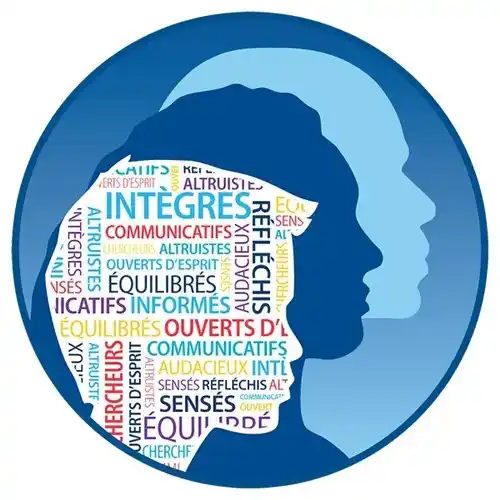How do historians and human scientists give knowledge meaning through the telling of stories? Discuss with reference to history and the human sciences.
According to Jean-Paul Sartre, a man is always a teller of tales; he lives surrounded by his stories and the stories of others; he sees everything that happens to him through them, and he tries to live his life as if he were recounting it. Storytelling therefore can be described as the action of telling an account or a description of a connected series of events or narratives which can be presented through a sequence of written or spoken words still or moving images or any combination of these. Narratives itself can act as a form of redescription; a mode of knowledge. With knowledge being described here as true, justified belief, it can be given meaning in the form of significance, clarity, and relevance through the telly
In the area of knowledge of history, historians face the challenge of limited sources and evidence required to construct knowledge on certain historical events. This is particularly relevant to preliterate societies which have no written records of their history. In such societies, the local community uses oral tradition which is a narrative approach, defined as exclusively consisting of hearsay accounts, that is, testimonies that narrate an event that has not been witnessed and remembered by the informant himself, but which he has learned about through hearsay by historian Jan Vansina (2006). These oral testimonies concerning the past are transmitted from one person to another, one generation to another through word of mouth. There is significant value in oral tradition as a historical source in such societies aiding in the reconstruction of knowledge of their history.
This phenomenon can be observed in the construction of African history. As not many of the continent’s people developed any extensive form of writing, the earliest written accounts of theirs consist of European and Arab traders, travelers, and explorers who wrote about their experiences from their perspective primarily for home audiences or as personal memoirs.
 IB Online Help for Internal Assessments!
IB Online Help for Internal Assessments!
This paucity of written records led to the dismissal of the notion of African history most notoriously in the case of Georg Wilhelm Friedrich Hegel, a German philosopher who claimed that Africa is an unhistorical, undeveloped spirit. African and African historians have therefore been using oral tradition, the only source that seemed available at the time to prove the existence of their history and have professed the value of oral tradition as a veritable historical source.
Consider another example, In Nigeria, the pioneering works of Kenneth Dike—Trade and Politics in the Niger Delta (1956) have relied mainly on gathered oral traditions and have survived much historiographical scrutiny to remain national historical classics.
IMPLICATIONS
Therefore, in this way, the telling of stories, here oral tradition, has given knowledge relevance as it allows for the generation of knowledge relevant to a particular community that could not have been constructed otherwise.
However, the use of storytelling comes with its own limitations in the context of the production of knowledge. Historians through their methodology of obtaining knowledge have always aspired to exactitude and truth. Oral tradition wholly relies upon collective or tribal memories extending beyond personal experience to represent a shared reality. However, with memory, one must also keep in mind what is forgotten or what is chosen to be forgotten, as memory and forgottenness go hand in hand.
Historic fiction writer Hilary Mantel pointed out, that the past changes every time we retell it. The repeated transmission of narratives within oral tradition makes it vulnerable to inaccuracies. There is also the possibility that it can be distorted to give credence to and glorify a religion or political group. This has made many historians question its historical validity. Although historians give knowledge meaning through storytelling, history is not always accurate as most times it is written from the side of the victor even in the case of oral tradition.
 Custom Study Plans via Online IB Coaching!
Custom Study Plans via Online IB Coaching!
However, the question remains whether the special characteristics of oral tradition and the unwritten information it provides which is dependent on the memory of successive generations invalidate it as a source of historical data. Professor Vanisina has described how a historian can extract or deduce the historical content of oral testimonies along with the various processes that have been developed for the mitigation of these weaknesses. It is also important to consider that in cases described previously where oral tradition forms the main source for a reconstruction of the past, history may even have no meaning without the utilization of stories gathered through oral tradition.
Human sciences is another discipline that extensively makes use of storytelling and narratives to give meaning to knowledge through the use of narrative inquiry research where experiences of an individual or small group, reveal the lived experience or particular perspective of that individual, usually primarily through interviews which is then recorded and ordered into a chronological narrative. Connelly and Clandinin (1990) note that, “Humans are storytelling organisms who, individually and collectively, lead storied lives. Thus, the study of narrative is the study of the ways humans experience the world.” In other words, people’s lives consist of stories, and human sciences is an area of knowledge that tries to understand human behavior in different aspects.
🌐 Best IB Online Tutoring in India, UK, UAE & Beyond
For instance, for the study of deindustrialization in the anthracite coal region of northeastern Pennsylvania, Thomas Dublin and Walter Licht interviewed almost ninety men and women who had lived through the long economic decline that started when the region’s mines closed during the mid-twentieth century. Getting underneath the statistical summaries and institutional responses afforded by census data, government reports, and company and union records, the interviews are replete with information about the various and deeply gendered strategies individuals used to cope with this disaster. This allowed social economists to get clarity on the impact of the economic crisis on ‘ordinary people’ and a shift in social behavior as a response to new economic circumstances as a whole.
 IB Assessment Practice via Online Tools!
IB Assessment Practice via Online Tools!
Nonetheless, some have argued, not without cause, that the highly individual, personal perspective of an interview, coupled with the social economist’s typical focus on everyday life, tends to overstate individual agency and obscure the workings of political and cultural power. Many many narrators recall with great pride how they coped with life’s circumstances through individual effort and sustained hard work. Moreover, it is also important to note that these narrators are a self-selected group; the most articulate and self-assured members of any group, creating an implicit bias. Moreover, the observer’s effect is another limitation that threatens the validity of the knowledge obscured from such interviews. It has been proven through numerous studies that people tend to change their behavior as they are being watched.
📋 Book a Trial Session with IB Online Tutor Now
Lastly, common to both the AOKs is the use of narratives in the post-production of knowledge. It is widely believed that since stories are central to human cognition and communication humans tend to remember and process information better when they hear or read a story as narratives provide a deeper understanding of concepts, thoughts, and ideas. Stories allow both historians and human scientists to write documents of knowledge with a narrative voice that is both informative and compelling. The art of storytelling inspires readers to care enough to move forward by making them understand what it is like to be in a given situation and enter a world experienced by research participants and therefore acts as a solution for one of the greatest challenges in disseminating research and knowledge.
 IB Success Starts with Online Personalized Learning!
IB Success Starts with Online Personalized Learning!
- What criteria can we use to distinguish between knowledge, belief, and opinion?
- Is the truth what the majority of people accept?
- Are there types of knowledge that are specifically linked to particular communities of knowers?
- Are intuition, evidence, reasoning, consensus, and authority all equally convincing methods of justification?
- Does knowledge always require some kind of rational basis?
- What are the advantages and disadvantages of requiring that all knowledge is verified by a group?
- As knowers, do we have a moral duty to examine our own assumptions and biases?
- How has technology had an impact on collective memory and how knowledge is preserved?
- What role does language play in allowing knowledge to be shared with future generations?
- Are there differences in how knowledge itself is conceived of, or presented, in different languages?
- To what extent does language allow us to make our private experiences public?
- How does language allow humans to pool resources and share knowledge?
- Does the transmission of knowledge from one person or generation to another depend on language?
- In what ways is factual evidence sometimes used, abused, dismissed, and ignored in politics?
- In what ways does the loss of indigenous languages signify a loss of knowledge and cultural diversity
- How reliable are oral traditions in preserving knowledge in indigenous societies?
- What is the role of oral tradition in enabling knowledge to be handed down through generations?
- Does what is seen to constitute “good evidence” vary from culture to culture?
- What is the role of folklore, rituals, and songs in acquiring and sharing knowledge?
- What methods have indigenous peoples developed to support the recording, preservation, and protection of their traditional knowledge?
- Is truth the goal of all historical inquiry?
- What counts as a fact in history?
- If it is difficult to establish proof in history, does that mean that all versions are equally acceptable?
- Are historians’ accounts necessarily subjective?
- How might the existence of different historical perspectives be beneficial to historical knowledge?
- Can the historian be free of bias in the selection and interpretation of material?
- Is it inevitable that historians will be affected by their own cultural context?
- How can we gauge the extent to which history is being told from a cultural or national perspective?
- If our senses are sometimes unreliable, does this mean that eyewitness testimony is an unreliable source of evidence?
- What challenges does archive-based history emphasize about how knowledge is shared and preserved?
- Is human behavior too unpredictable to study scientifically?
- To what extent is it legitimate for a researcher to draw on their own experiences as evidence in their investigations in the human sciences?
- Is it possible to eliminate the effect of the observer in the pursuit of knowledge in the human sciences?
- Is the role of the human scientist only to describe what the case is or also to make judgments about what should be the case?






